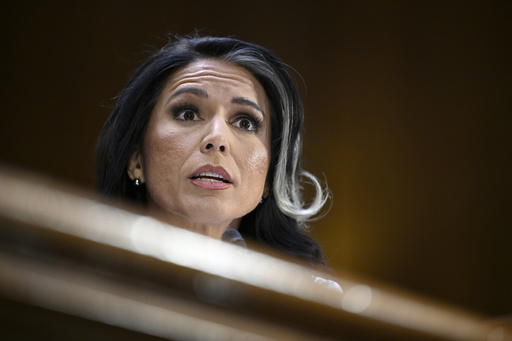
Defense Secretary Pete Hegseth has indicated a significant change in the U.S. approach towards Ukraine. During discussions with allies in Brussels, he conveyed the need to let go of the “unrealistic ambition” of restoring Ukraine’s borders to their status prior to 2014, focusing instead on pursuing a negotiated peace with Russia, which would be supported by an international coalition that does not involve American troops.
Meanwhile, on the home front, the U.S. faced concerning inflation figures that coincided with President Donald Trump’s intentions to revolutionize global trade through an extensive order of reciprocal tariffs.
The relationship between Indian Prime Minister Narendra Modi and Trump may also face challenges as Modi’s Washington visit unfolds.
In the political arena, GOP lawmakers are voicing growing unease regarding Trump’s executive measures, particularly those initiated by billionaire Elon Musk’s DOGE, which they feel jeopardize local jobs and industries. For instance, Senator Katie Britt from Alabama is advocating against potential cuts to crucial research funding at the University of Alabama. Similarly, Kansas GOP Senator Jerry Moran is expressing concern that agricultural produce from local farmers might go to waste due to the shuttering of the U.S. Agency for International Development (USAID). While Democratic leaders have been vocal about the fallout, these Republican objections signal an emerging GOP response to the sweeping changes made by Trump.
At a press conference, the White House claimed that court decisions unfavorable to Trump’s initiatives amount to a “constitutional crisis,” attributing this to what they termed “judicial activists.” Press Secretary Karoline Leavitt criticized these judicial figures, asserting that they are not impartial interpreters of law.
In communications worthy of note, Ukrainian President Volodymyr Zelenskyy revealed he recently had a conversation with Trump regarding potential peace avenues in the conflict with Russia. Zelenskyy posted on social media that they explored collaborative strategies while highlighting Ukraine’s advancements in technological capabilities relevant to warfare. Trump characterized their exchange as “very promising,” and hinted at an upcoming meeting in Munich with Vice President JD Vance and Secretary of State Marco Rubio.
Turning to recent international developments, it was confirmed that Alexander Vinnik, a Russian prisoner, was released in exchange for American Marc Fogel. Vinnik, who faced charges ranging from cryptocurrency fraud to money laundering, was apprehended in Greece in 2017 and later extradited to the U.S. His history includes operating notorious ransomware, illustrating the complexities surrounding exchange negotiations involving detained citizens.
In another pivotal conversation, Trump and Zelenskyy reportedly discussed strategies for addressing the ongoing war in Ukraine during their phone call, contradicting the previous Biden administration’s position that Ukraine should be included in decision-making processes concerning its future.
Further attention was drawn to the Trump administration’s recent actions impacting funding for migrant housing in New York City, indicating that FEMA had retracted support due to allegations of misuse, specifically regarding the provision of luxurious accommodations.
On the cultural front, the National Endowment for the Arts and Humanities has revised its funding guidelines to comply with new executive orders. These updates stipulate that applicants must not engage in any initiatives that promote diversity or equity deemed contrary to federal anti-discrimination laws, thus impacting how federal funds will be allocated in the immediate future.
In health policy, the Senate is poised to confirm Robert F. Kennedy Jr. as the head of the Health and Human Services Department despite facing partisan scrutiny related to his controversial views on vaccines.
USAID staffers in Congo have expressed feeling abandoned by the Trump administration, citing increasing violence and looting, as political instability in their region has surged. Legal actions are being pursued to contest the administration’s recent funding cuts.
Regional leaders from Egypt and Jordan have unequivocally rejected Trump’s contentious Gaza plan, emphasizing the importance of reconstruction efforts without displacing the Palestinian population, aligning themselves with Trump’s long-term goal of achieving durable peace through support for statehood.
Finally, Trump’s administration is set to finalize Tulsi Gabbard’s position as the director of national intelligence in a contentious vote, while other initiatives and personnel decisions continue to draw fire and scrutiny from both sides of the aisle, signaling an increasingly polarized political landscape. Meanwhile, Trump hinted at the release of another American, continuing his streak of diplomatic negotiations regarding detained U.S. citizens abroad.

